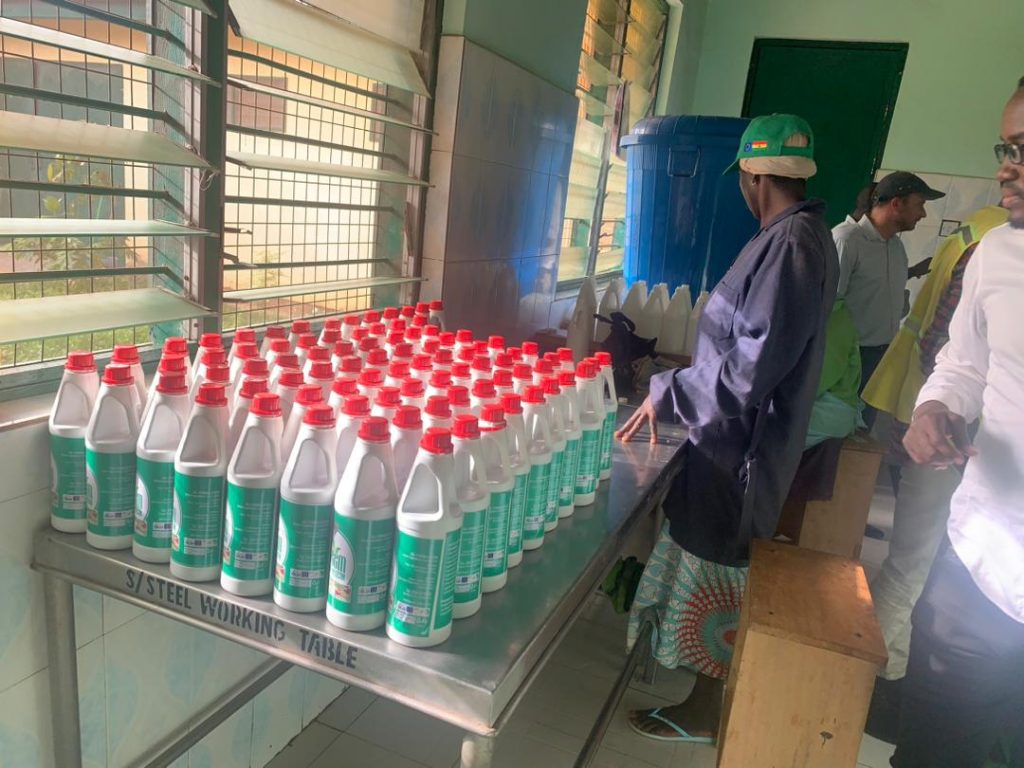By Philip Tengzu
Busa, (UW/R), May 20, GNA – The agriculture sector in the Upper West Region is set to see a major boost with the construction and rehabilitation of 15 irrigation facilities in the region under the European Union-Ghana Agriculture Programme (EU-GAP).
The intervention would comprise the rehabilitation of nine existing dams including the Busa, Siiru, and Sankana irrigation dams, and the construction of six new dams in communities including Piina and Gurungu.
The project was funded by the EU and the French Government through the Agence Française de Development (AFD), and implemented by Ghana’s Ministry of Finance, Ghana Irrigation Development and Authority, and the Ministry of Food and Agriculture.
Mr Stephen Maclean, Project Manager of the Agricultural Water Management Project (AWMP) of the EU-GAP, said this at Busa, a predominately farming community in the Wa Municipality when he led a delegation from the EU, AFD, and the project implementing agencies to assess the current state of the Busa dam.
He said the project would also, among other things, provide facilities for farmers along the Black Volta to draw water from the river for farming.
Talking about the Busa dam, Mr Maclean said it was habilitated in 1995, 37 years after it was constructed, and had since not seen any repair works on it hence the need to rehabilitate it to help improve irrigation farming in the area.
“This project is bringing a new intervention. Over the years the dam wall is eroded, and the canals are spoiled, so this intervention is to repair the dam wall and repair the irrigation component, that is, repair the canals, desilt the drains, and construct new laterals.
After the repair works they will have an efficient system to use. They will do more farming and supply vegetables to Wa Community”, Mr Maclean explained.

Mr Christophe Cottet, the Country Director of AFD, 35 irrigation facilities had been earmarked to be constructed and rehabilitated across northern Ghana under the EUR44.7 million AWMP.
He said the rehabilitation of the Busa dam was expected to start in the last quarter of 2024 after necessary studies and procurement were completed.
Mr Pieter Smidt Van Gelder, Deputy Head of Mission, EU Delegation to Ghana, indicated that the implementation of the project would involve the community members since they would be the direct beneficiaries.
He said the project was delayed by the COVID-19 pandemic but that it would eventually be executed to positively impact the livelihood of the farmers.
Mr Abu Ahmed, a farmer at Busa, commended the benefactors for the intervention and said the dam had helped reduce the number of youth from the community traveling to the southern sector and women were also able to do dry season farming to earn a living.
The team also visited the Neem Seed Processing facility in Wa managed by the Tibourataa Women Group to assess the production at the facility.
Mr Aman Emile, Input and Crop Protection Specialist at the facility said there was an increasing demand for organic farm inputs and that the Neem Seed pesticide was to help bridge the demand gap.
He said the neem seed pesticide was a broad spectrum pesticide, health and environmentally-friendly, economical, and did not need a waiting period before harvest after the crop had been sprayed and encouraged farmers to resort to that pesticide.
GNA